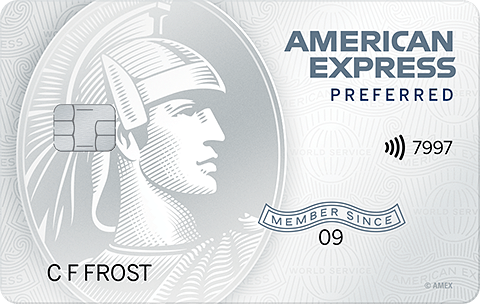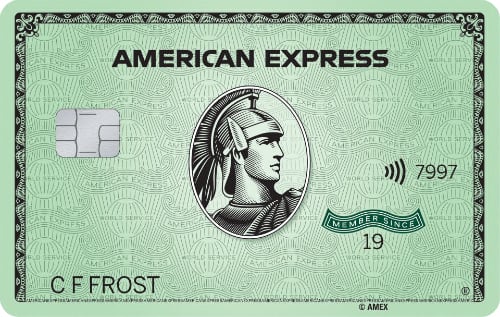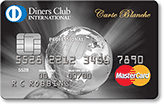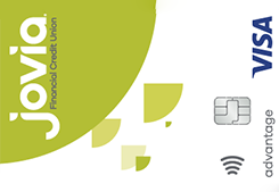- myFICO® Forums
- Types of Credit
- Credit Cards
- Uses of cash back
- Subscribe to RSS Feed
- Mark Topic as New
- Mark Topic as Read
- Float this Topic for Current User
- Bookmark
- Subscribe
- Mute
- Printer Friendly Page
Uses of cash back
Is your credit card giving you the perks you want?
Browse credit cards from a variety of issuers to see if there's a better card for you.
- Mark as New
- Bookmark
- Subscribe
- Mute
- Subscribe to RSS Feed
- Permalink
- Report Inappropriate Content
Uses of cash back
Can someone explain, or point me to other posts that would explain the uses of cash back other than reducing the outstanding balance on the earning card. For example, do some cards allow the cash back to be deposited in some account or otherwise turned into actual cash? If one has several cash back cards, can the cash back be consolidated in some way?
I've always been an MR guy -- AXP, AXG, EDP, MR checking -- and use my Chase Sapphire VISA card (it's a sapphire, not sapphire preferred) only when a merchant doesn't take AX. I'm looking for a way to gain some advantage when I've gone thru $6K in groceries on EDP and the 2x (3x) reverts to 1x (1.5x) and perhaps cover any other percent multiples not already covered by the AX cards. I suppose I could just use the VISA card and plow the points into reducing the statement balance, but wondering if there's a more efficient way. I'm not a points finatic; just prefer having "rewards" (points or cash) accrue faster by having them all go into one place, and prefer the ability to pay for purchases or move points to partners rather than having lots of cards with bits of cash back floating around and no ability to consolidate. I don't see the advantage of cash back if all one can do is pay down the monthly statement. You can do with with points, and in the case of MR, a lot more, and it would seem to me to require a major investment in a cash back card for the cash back amount amount to be of significant use.
What am I missing here?









...and debt free.
- Mark as New
- Bookmark
- Subscribe
- Mute
- Subscribe to RSS Feed
- Permalink
- Report Inappropriate Content
Re: Uses of cash back
First let's clarify some multipliers...
EDP ($95 AF) gives:
3x at supermarkets (up to $6k)
2x on gas
1x elsewhere
With 30 transactions, a 1.5x multiplier applies and the card goes from 3/2/1x to 4.5/3/1.5x.
ED (no AF) gives:
2x at supermarkets (up to $6k)
1x elsewhere
With 20 transactions, a 1.2x multiplier applies and the card goes from 2/1x to 2.4x/1.2x.
Amex Gold ($250 AF) gives:
4x at supermarkets (up to $25k)
4x on dining (incl. international)
3x on flights (meh)
1x elsewhere
$10 monthly Uber cash
$10 monthly GrubHub credits
Do you still have your personal Gold? I get reasonable value from the credits and it's nice to not concern myself with rotating categories. The $25k cap isn't a problem for me, and it doubles as an excellent dining card.
Business use: Amex Bus. Plat., BBP, Lowes Amex AU, CFU AU
Perks: Delta Plat., United Explorer, IHG49, Hyatt, "Old SPG"
Mostly SD: Freedom Flex, Freedom, Arrival
Upgrade/Downgrade games: ED, BCE
SUB chasing: AA Platinum Select
- Mark as New
- Bookmark
- Subscribe
- Mute
- Subscribe to RSS Feed
- Permalink
- Report Inappropriate Content
Re: Uses of cash back
"still"? havent had gold for decades. Gave it up when I went platinum. However, if it were free and allowed me to accrue points it might be well worth it. I'll look into that.
Thanks.









...and debt free.
- Mark as New
- Bookmark
- Subscribe
- Mute
- Subscribe to RSS Feed
- Permalink
- Report Inappropriate Content
Re: Uses of cash back
MR reward cards are not any good if you can't get value from the points.
Pooling points for long periods has danger and possible value loss.
Most MR cards have AF and don't reward for categorizes that cash back cards cover.
Pooling cash is called a savings account.
I could ask why would anyone want to pay AF's and collect points,
when they could get cash back every month. ![]()
It all depends on where you spend, and the value of the points for how
you redeem them vs cash in hand.
For me the Cash is > MR .and. Cash > UR
If MR > Cash, you have your path.
I am on a different path.
- Mark as New
- Bookmark
- Subscribe
- Mute
- Subscribe to RSS Feed
- Permalink
- Report Inappropriate Content
Re: Uses of cash back
Well the basic value of the points is to pay down the balance on the card, which is the same thing I assume one would do with cash back. My concern in having cash back cards is there's no way to consolidate the bits and pieces of cash that you accrue to make that worthwhile, unless you spend a lot of money on every card. I had cash back cards in the long past and found the reward was... disappointing. Everything I purchase goes into rewards points (I don't use cash) those points can be used to pay down any of the cards, no?









...and debt free.
- Mark as New
- Bookmark
- Subscribe
- Mute
- Subscribe to RSS Feed
- Permalink
- Report Inappropriate Content
Re: Uses of cash back
Also I've never heard of any danger in holding points for a long time. I've done that over the years and Amex has never complained.









...and debt free.
- Mark as New
- Bookmark
- Subscribe
- Mute
- Subscribe to RSS Feed
- Permalink
- Report Inappropriate Content
Re: Uses of cash back
@alocksley wrote:Well the basic value of the points is to pay down the balance on the card, which is the same thing I assume one would do with cash back. My concern in having cash back cards is there's no way to consolidate the bits and pieces of cash that you accrue to make that worthwhile, unless you spend a lot of money on every card. I had cash back cards in the long past and found the reward was... disappointing. Everything I purchase goes into rewards points (I don't use cash) those points can be used to pay down any of the cards, no?
Using MRs to pay down the balance is a bad idea (0.6cpp), so while that might be the "basic value" you might also consider gift cards, usually 1cpp as an alternative basic value.
But on the other part, many cashback cards DO allow you to move the cashback to an external bank account and so you can easily consolidate the cash back there (whereas with alternative point systems, combining is harder, have to transfer to a common partner). Some cards have a minimum redemption amount, say $25, so you can indeed be left with small amounts on several cards that you cannot (yet) use, but we are seeing more no-minimum cards. And yes, some cards are effectively only statement credit (but in this case it's 1c for 1c!)
- Mark as New
- Bookmark
- Subscribe
- Mute
- Subscribe to RSS Feed
- Permalink
- Report Inappropriate Content
Re: Uses of cash back
@alocksley wrote:Also I've never heard of any danger in holding points for a long time. I've done that over the years and Amex has never complained.
The issuers never complain about this! The danger is to you.
For any system, cashback or MR etc, it's always possible that the issuer decides to close your card(s), rightly or wrongly. In many cases, the rules specify that any unredeemed rewards belong to the issuer and potentially you lose them all.
With cashback, keeping them with the issuer makes little sense as they are not earning interest, you should redeem them and put them in an interest bearing account if you have no immediate need.
With points, they tend to devalue over time for travel partners, so a trip that was 100K MR is now 120K MR. If you need to save up, you don't have much option, but if you have the points, earn and burn is a popular strategy.
- Mark as New
- Bookmark
- Subscribe
- Mute
- Subscribe to RSS Feed
- Permalink
- Report Inappropriate Content
Re: Uses of cash back
@alocksley wrote:Can someone explain, or point me to other posts that would explain the uses of cash back other than reducing the outstanding balance on the earning card. For example, do some cards allow the cash back to be deposited in some account or otherwise turned into actual cash? If one has several cash back cards, can the cash back be consolidated in some way?
I've always been an MR guy -- AXP, AXG, EDP, MR checking -- and use my Chase Sapphire VISA card (it's a sapphire, not sapphire preferred) only when a merchant doesn't take AX. I'm looking for a way to gain some advantage when I've gone thru $6K in groceries on EDP and the 2x (3x) reverts to 1x (1.5x) and perhaps cover any other percent multiples not already covered by the AX cards. I suppose I could just use the VISA card and plow the points into reducing the statement balance, but wondering if there's a more efficient way. I'm not a points finatic; just prefer having "rewards" (points or cash) accrue faster by having them all go into one place, and prefer the ability to pay for purchases or move points to partners rather than having lots of cards with bits of cash back floating around and no ability to consolidate. I don't see the advantage of cash back if all one can do is pay down the monthly statement. You can do with with points, and in the case of MR, a lot more, and it would seem to me to require a major investment in a cash back card for the cash back amount amount to be of significant use.
What am I missing here?
It depends on the lender. Some just give you statement credits. Some give you a choice of different ways to use your cashback, including just depositing it into one of your bank accounts.
































Total revolving limits 569520 (505320 reporting) FICO 8: EQ 689 TU 684 EX 685
- Mark as New
- Bookmark
- Subscribe
- Mute
- Subscribe to RSS Feed
- Permalink
- Report Inappropriate Content
Re: Uses of cash back
Lol for starters I have 2 checking accounts: chase, which pays nothing, and AX MR, which pays 1%. So I'll use the Visa card and cash in the points to that checking account and then transfer it to amex. LMFAO.









...and debt free.